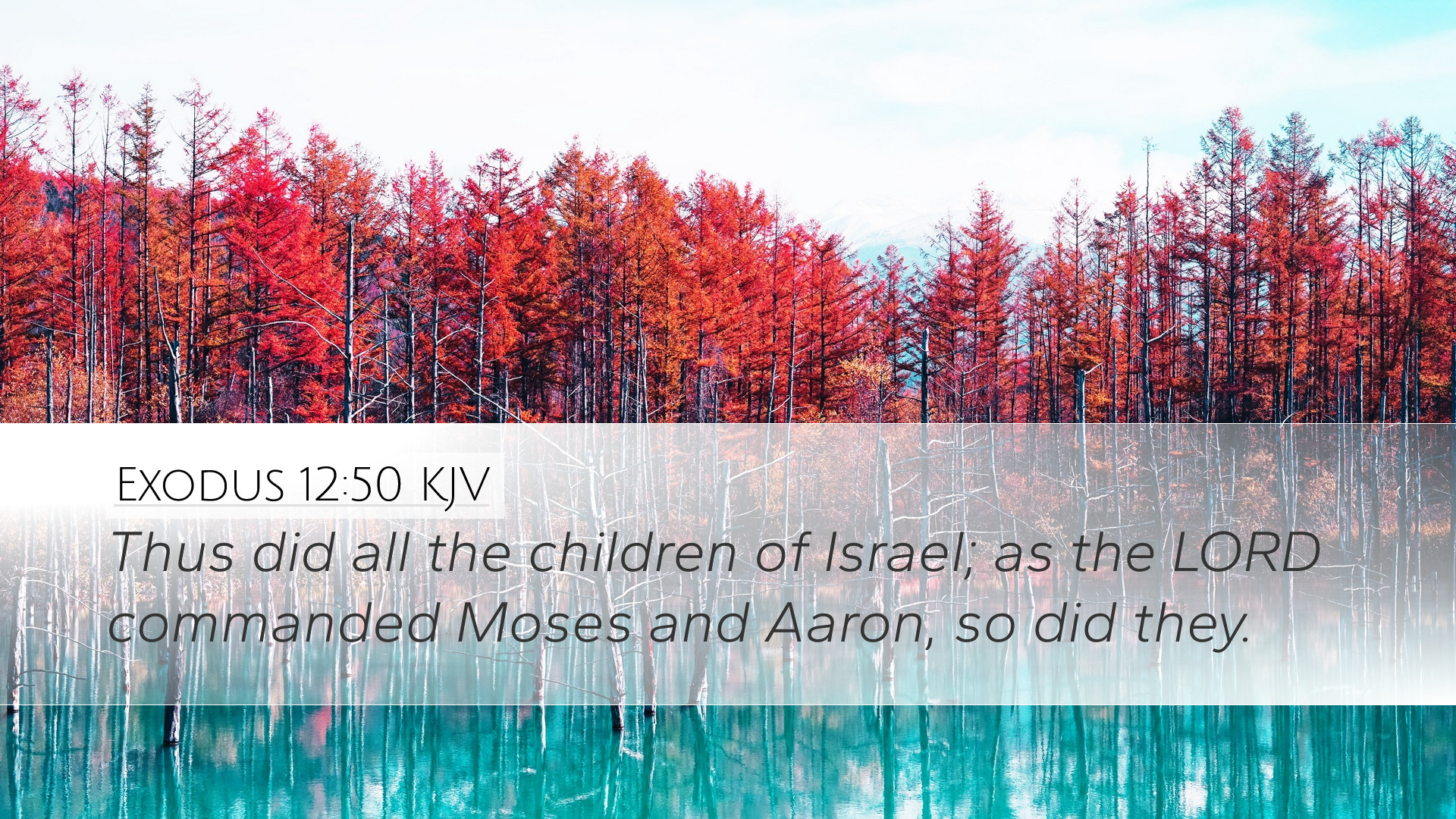Commentary on Exodus 12:50
Bible Verse: "And all the children of Israel did as the LORD commanded Moses and Aaron; so did they."
Introduction
Exodus 12:50 stands as a pivotal verse within the larger narrative of the Exodus, marking the moment when the Israelites obeyed the commands given by God through Moses and Aaron regarding the Passover and the preparation for their deliverance from Egypt. This verse encapsulates themes of obedience, faithfulness, and divine intervention, which are crucial for understanding the nature of God's relationship with His people.
Contextual Overview
This verse concludes a significant passage regarding the Passover celebration, which was instituted as a crucial event that would lead to the Israelites' liberation from slavery in Egypt. The observance of the Passover would not only serve as a historical remembrance but also as an ongoing covenantal sign for generations to come.
Thematic Insights
- Obedience to Divine Command:
The repeated emphasis on the Israelite's adherence to God's commands highlights the theme of obedience as central to their identity as God's chosen people. Matthew Henry notes that they acted upon the Lord's commands "with unhesitating faith and readiness," which is essential for the faithful walk of believers today.
- The Role of Leadership:
Moses and Aaron as leaders play a vital role in guiding the Israelites through God's directives. Albert Barnes emphasizes that leaders must be aligned with God’s will to lead others effectively. This concept applies to spiritual leaders today, reminding them that their direction should stem from divine instruction.
- Covenantal Relationship:
Exodus 12:50 underscores the covenant between God and Israel. Adam Clarke remarks on how the observance of the Passover was integral to the covenant and that disobedience could breach this sacred agreement. Understanding this covenant is pivotal for interpreting the overarching narrative of Scripture and its fulfillment in Christ.
Exegetical Insights
Analyzing the original Hebrew text can shed light on the nuance of the verse. The term "did" reflects a sense of action that is not passive but requires active implementation of God's word. The phrase is indicative of the collective action of the Israelites, demonstrating a unified response to God’s command.
Practical Applications
- Faith and Action:
Believers are called to not only hear God's commandments but also to act upon them. This verse encourages a faith that is demonstrated through tangible actions.
- Unity in Obedience:
The Israelites' collective response serves as an admonition for the church today. Christians are encouraged to move together in faithfulness to God's calling, fostering a community that holds each other accountable in acts of obedience and worship.
- The Importance of Memory:
Just as the Passover is a reminder of God's deliverance, today's believers are encouraged to remember their own testimonies of salvation and grace. This reflection can strengthen their faith and resolve to walk in obedience.
Conclusion
Exodus 12:50 serves as a powerful reminder of the necessity of obedience to God's commandments and the importance of faithful leadership. It's a testament to the blessing found in walking in accordance with God's will and the profound implications this has on the journey of faith for every believer. As we reflect on this verse, may we be inspired to embrace our roles as obedient followers of Christ, holding fast to the truth of His word and encouraging one another in our spiritual journeys.


